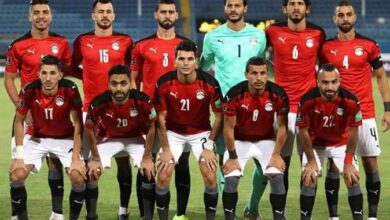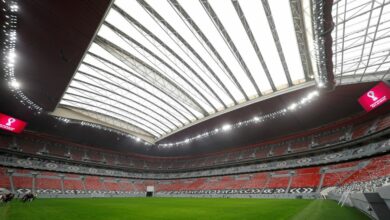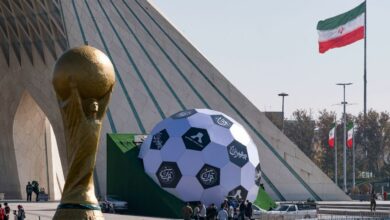
Now that Sepp Blatter says he will be resigning, the race opens to succeed him as FIFA president.
The job has been held by nine men since FIFA’s founding in 1904, but just two over the past four decades: Joao Havelange of Brazil from 1974-98 and Blatter since then.
Blatter announced his decision to resign Tuesday, just four days after he was elected to a fifth four-year term through 2019.
An election is expected to be held by an extraordinary FIFA congress between December and March. The rules call for a vote by secret paper ballot. Africa has 54 votes, Europe 53, Asia 46, North and Central America and the Caribbean 35, Oceania 11 and South America 10.
A look at possible candidates:
Michel Platini
Long expected to run for the FIFA job this year, Platini announced last August: “Now is not my time, not yet.” He pushed last week for Blatter to quit before the election. Because Europe holds only about one-quarter of the votes, Platini would need to build alliances to win.
Platini, who turns 60 on June 21, captained France to the 1984 European Championship title and won the European Cup with Juventus in 1985. He has been UEFA president since January 2007, when he won 27-23 against Sweden’s Lennart Johansson, who had held the job since 1990.
Platini presided over the expansion of the European Championship from 16 nations to 24 starting at next year’s tournament in France, pushed for Euro 2020 to be played in 13 cities across Europe rather than in one country, and as a member of the FIFA executive committee said he voted for Qatar to host the 2022 World Cup.
Prince Ali Bin Al-Hussein
Prince Ali, 39, would represent a two-generation change in leadership. Educated at the Royal Military Academy Sandhurst in Britain and Princeton in the United States, he was commissioned as an officer in the Jordanian military in December 1994 and was awarded the Brunei Medal for serving in Brunei. He has been president of the Jordan Football Association since 1999 and served on the FIFA executive committee from 2011 until last week, when he was replaced by Sheikh Ahmad al-Fahad al-Sabah of Kuwait.
Prince Ali lost to Blatter 133-73 in Friday’s vote, with opposition coalescing behind him after Luis Figo of Portugal and Michael van Praag of the Netherlands withdrew. Ali has promised to increase the World Cup field from 32 nations to 36.
Issa Hayatou
Hayatou, a Cameroonian who turns 69 in August, has been the president of the Confederation of African Football since 1988 and has been on the FIFA executive committee since 1990 – its second-longest-serving member. A former runner, basketball and soccer player, Hayatou ran against Blatter for FIFA president in 2002 and lost 139-56. He has been a member of the International Olympic Committee since 2001.
Hayatou was reprimanded by the IOC in 2011 for receiving US$20,000 in cash in 1995 from FIFA’s former marketing partner ISL. Hayatou denied wrongdoing, but the IOC said he was guilty of a conflict of interest. British newspaper The Sunday Times claimed in June 2014 that banned former Qatari official Mohamed bin Hammam targeted Hayatou and other African soccer leaders with cash, luxury trips and other gifts to support Qatar’s successful bid to host the 2022 World Cup. Hayatou has denied the allegations. Hayatou undergoes dialysis for kidney problems.
Michael Van Praag
The 67-year-old Dutchman was chairman of Ajax from 1989-03, following his father Jaap, who chaired the team’s board from 1964-78. A former referee, he became chairman of the Royal Dutch Football Association in 2008 and has been on the UEFA executive committee since 2009.
He was nominated to run against Blatter but withdrew a week before the election and supported Prince Ali. Van Praag had vowed to retain Blatter an adviser and head of a “Sepp Blatter Foundation” to help underprivileged children.




